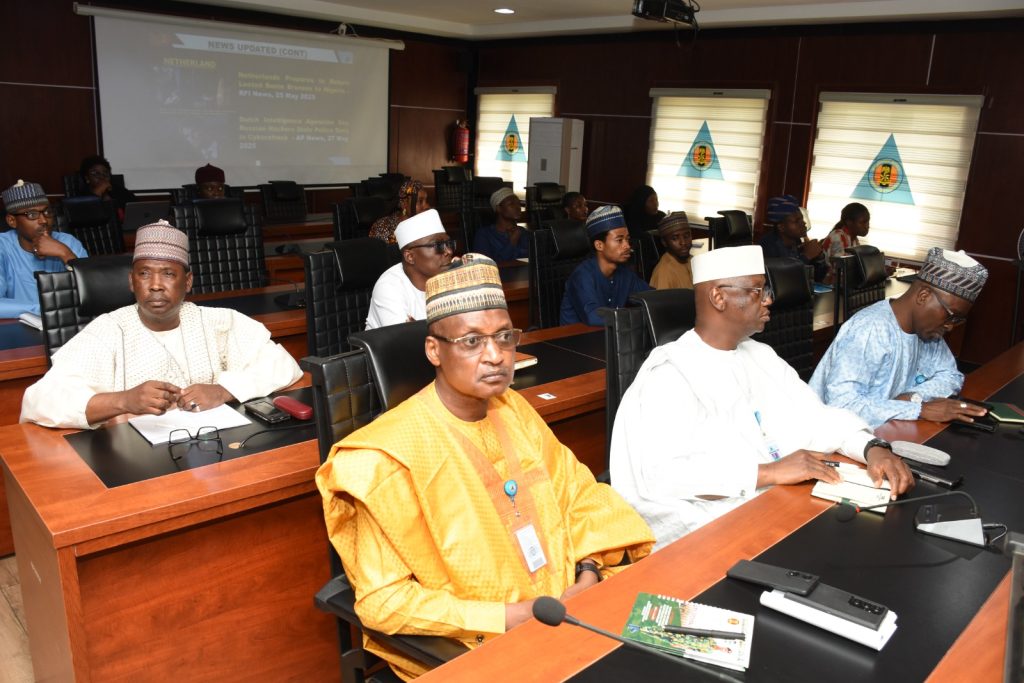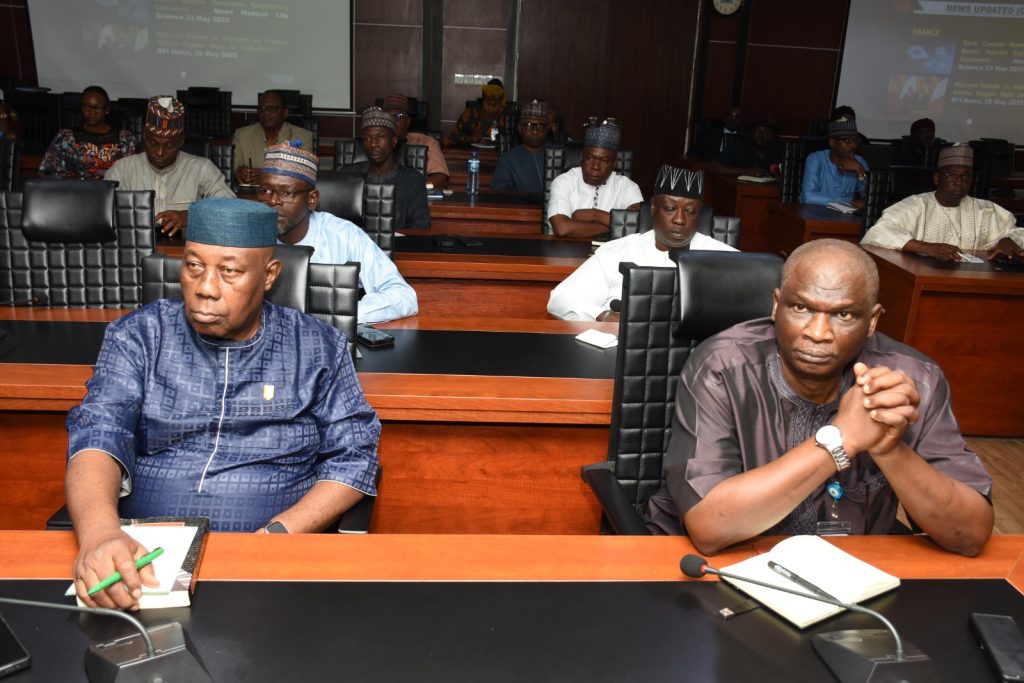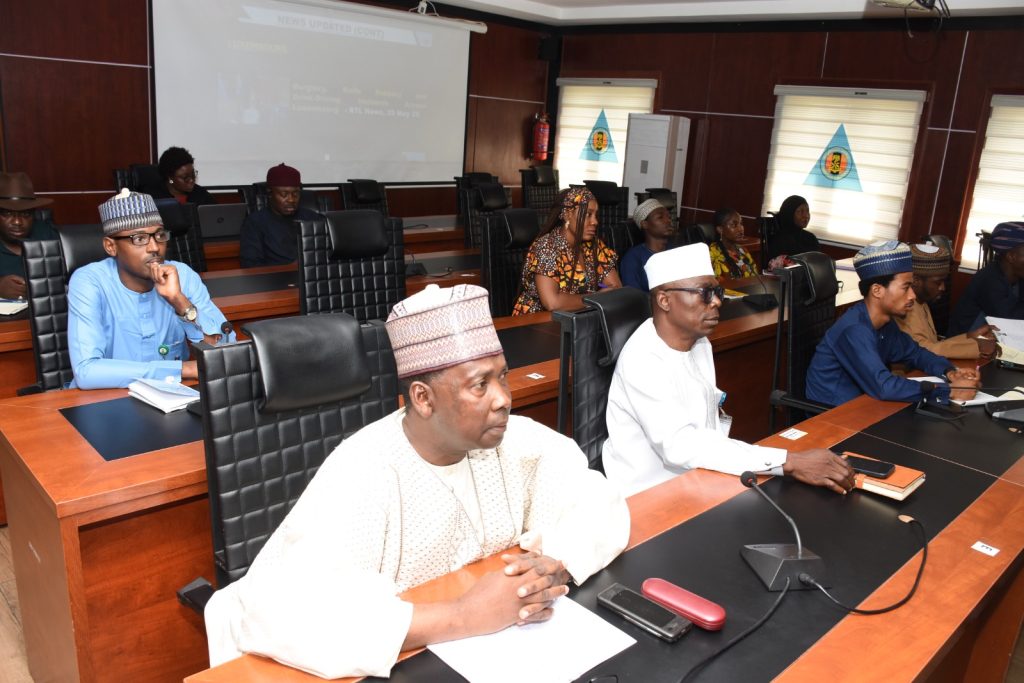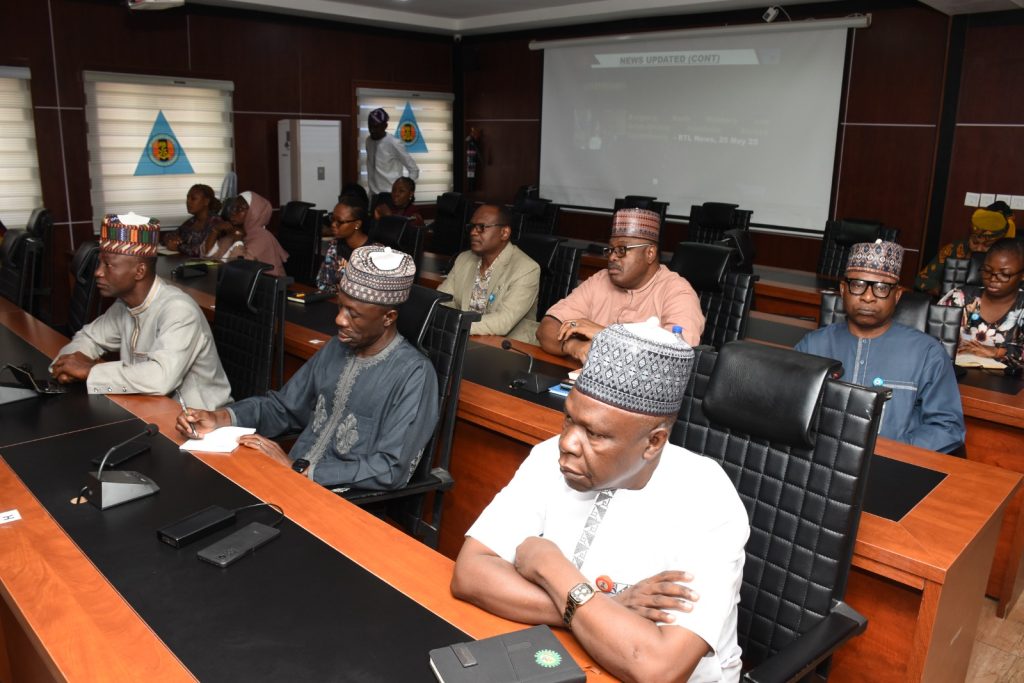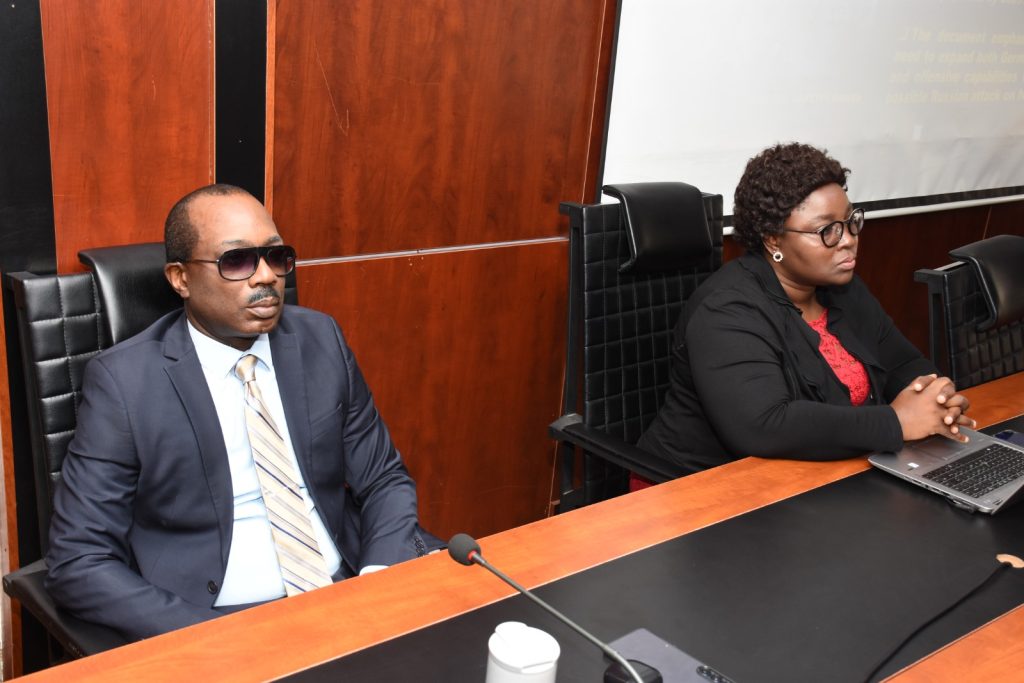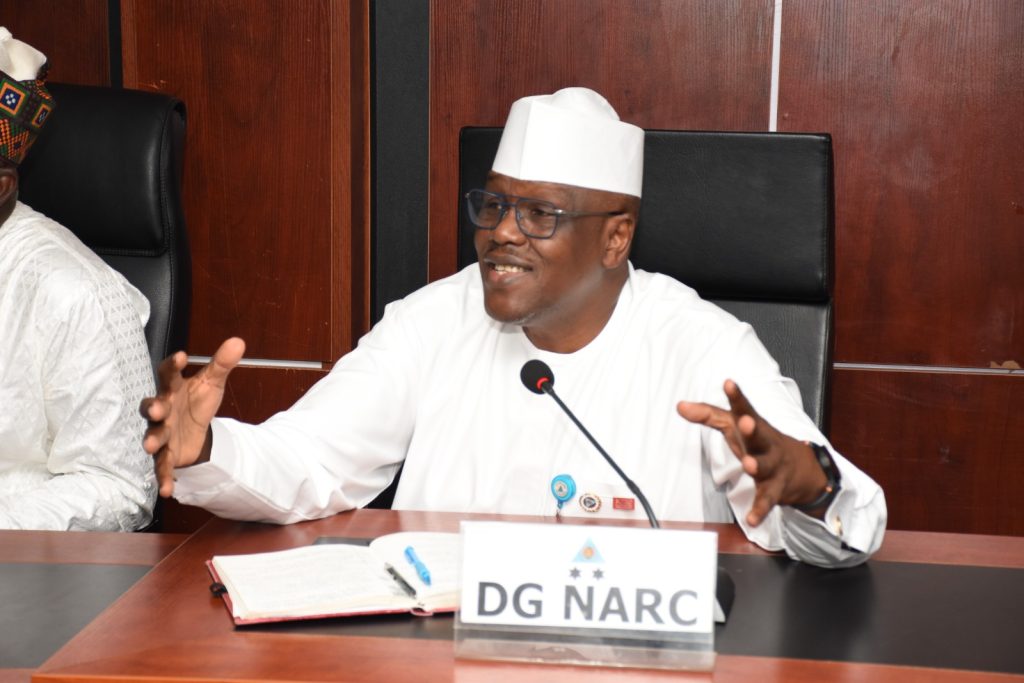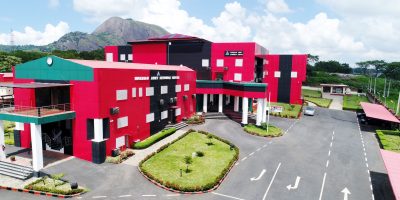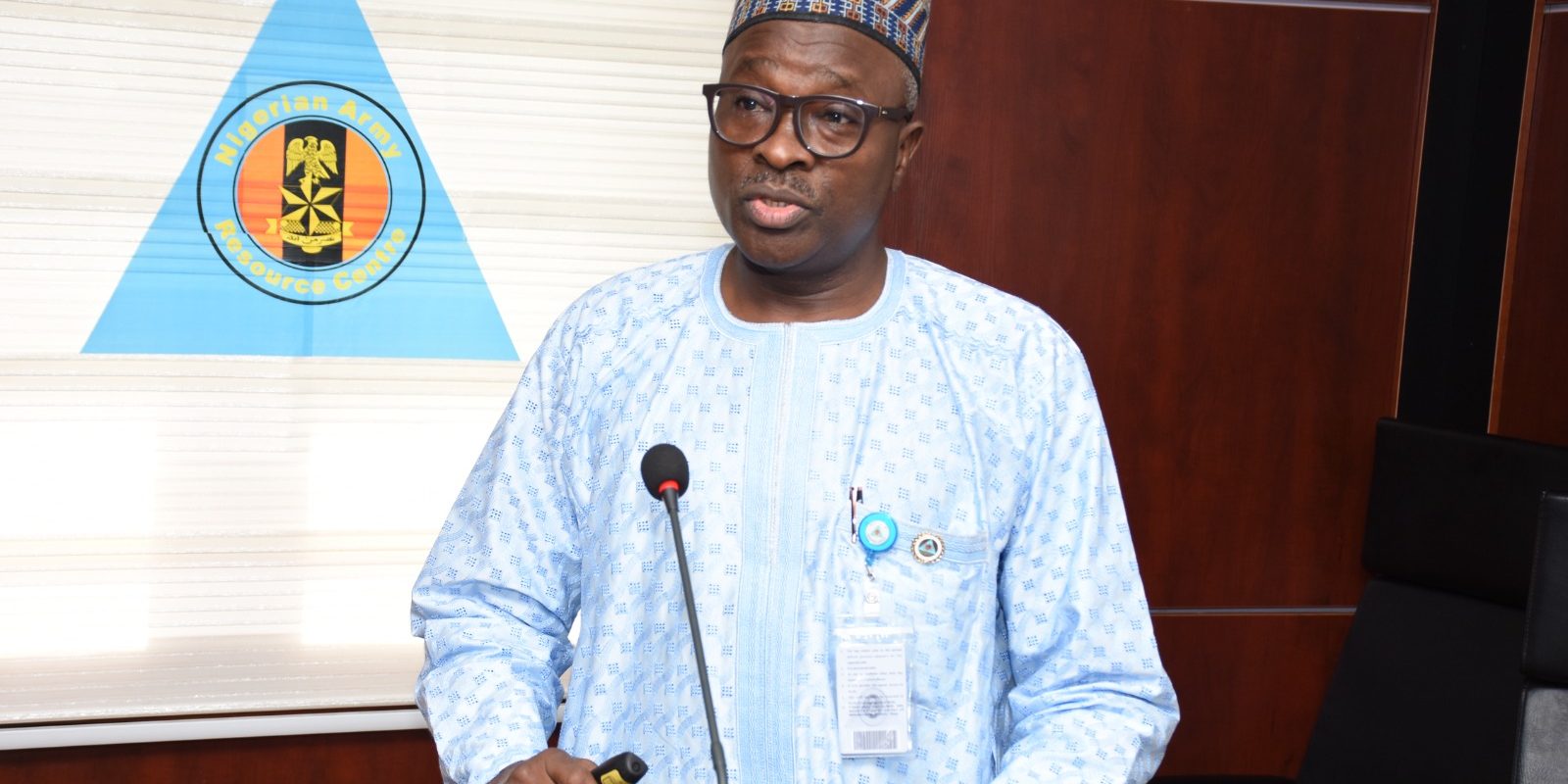Nigerian Army Resource Centre (NARC) Weekly Subject Experts’ Presentation was held at Hall B TY Buratai Block, Abuja. There were three presentations made by the Subject Experts on Western Europe, East/Central Africa and Nigeria.
The first presentation was made by Maj Gen HT Dada subject experts on Western Europe His presentation Centered on how, Germany’s Chief Of Defence Orders Urgent Rearmament Due To Threat Of Russian Attack. In response to the escalating tensions and the perceived threat posed by Russia to NATO countries, Reuters News Agency on Monday, 26 May 2025 reported that the “Germany’s Chief of Defence Carsten Breuer has issued a directive mandating the full rearmament of the Bundeswehr (German Military) with modern weapons and equipment by 2029. The document emphasises the urgent need to expand both Germany’s defensive and offensive capabilities in response to possible Russian attack on NATO territory. Breuer and other senior NATO officials estimated that by 2029, Russia may have rebuilt its military forces to a level allowing her to launch coordinated attacks within NATO territory. Breuer’s directive sets out the priorities for the production and procurement of weapons systems that would deter and prevent Russsia from cayying out such plans. The priority is in line with the NATO’s demands for Germany to strengthen its air defence at least 4 folds that should include long-range systems such as Patriot Missiles and other effective short-range systems.
In his analysis and lessons for Nigeria, Maj Gen HT Dada stressed out that, Nigeria, Africa’s most populous nation, has faced a myriad of security challenges, particularly in the past 2 years due to the anti-French sentiments in the Sahel Region, the weakening of ECOWAS’ MNJTF organ through the formation of AES by the key trio of Mali, Burkina Faso and Niger. Over the last 12 months, there has been unprecedented number of terrorist’s attacks in the neighboring B/Faso, Mali, Niger and lately Benin Republic. These attacks led to the carting away of unimaginable quantities of military hardware, ammunitions as well as the reduction of the fighting capabilities of Nigeria’s key partners in the fight against terrorism. These among other reasons have equally led to the corresponding increase in the terrorists’ activities in Nigeria thereby underscoring the urgent requirement for the rearmament and modernization of the Nigerian military as being witnessed by Germany. The low ranking of Nigeria at 35 out of 142 countries in military strength by Global Firepower Index (2023), indicates the need for improvements in our defence capabilities. However, the low defence budgetary allocation has made the desired adequate defence acquisition for effective military operations problematic.
He recommended that, The FGN should invest in modern counter insurgency military technology and equipment to stay ahead of potential threats and maintain a strong defense posture
The second presentation was made by Brig Gen ED Idimah subject experts on East and Central Africa. His presentation Centered on how, What Rural Communities In Tanzania Need To Know About Carbon Trading And Land Rights, On 19 May, 2025, Kizito Makoye of Inter Press, reported that Tanzania is becoming a hub for carbon offset projects, attracting foreign firms seeking land for carbon trading amidst rising global demand for carbon credits. While these projects aim to combat climate change by allowing polluters to offset emissions, they pose risks to local communities reliant on village land. Many villagers sign long-term contracts without fully understanding the implications, often receiving minimal compensation. The lack of regulation in Tanzania’s carbon market leaves communities vulnerable, as contracts may not consider customary land rights or include women and youth in decision-making. The Village Land Act protects customary tenure but fails to address carbon trading specifically.
In his analysis and lessons for Nigeria, Brig Gen ED Idimah stressed out that, Nigeria has not fully implemented a formal carbon trading system, but it has shown interest in utilizing carbon markets to address climate change. The country is part of various international climate agreements and has developed policies aimed at reducing emissions. The Nigerian government has developed initiatives such as the Nationally Determined Contributions (NDCs) under the Paris Agreement, which outline the country’s commitment to reducing greenhouse gas emissions by 20% unconditionally and 45% conditionally (Federal Ministry of Environment, 2020). Several projects such as the Nigeria Emission Reduction Program (NERP) aim to set the groundwork for carbon trading in the country by focusing on deforestation and forest degradation (REDD+). These initiatives are crucial for creating a carbon trading framework (Ogunleye, 2019). Carbon trading can attract foreign investment and enhance funding for sustainable projects (Akanji, 2021). It promotes sustainable practices that can lead to improved environmental health and biodiversity (Olufunmilayo, 2020). Nigeria can draw the following lessons from Tanzania’s experience with carbon offset projects: Regulatory Framework: Establish a clear and comprehensive regulatory framework for carbon trading, addressing issues like land rights, benefit-sharing, and community engagement. Customary Land Rights: Recognize and protect customary land rights, ensuring that carbon offset projects do not compromise the livelihoods of local communities.
He recommended that, The Federal Ministry of Education should encourage Nigerian universities to promote long-term PPP for infrastructural development, research collaboration and student support services.
The third presentation was made by Maj Gen UN Babangida subject experts on Nigeria. His presentation Centered on how, ASUU threatens nationwide strike over unfulfilled FG agreement, and The Academic Staff Union of Universities (ASUU) has issued a strong warning of a possible nationwide strike if the Federal Government fails to honour the long-standing 2009 Federal Government (FG) /ASUU agreement. ASUU President, Dr. Chris Piwuna, addressed the press in Abuja, where he expressed deep frustration over the Federal Government’s continued neglect of critical issues plaguing Nigerian public universities.Dr. Piwuna stated that nine major unresolved issues, which include funding shortfalls, staff welfare, and institutional autonomy, remain a source of significant discontent among university lecturers. One of the central grievances is the stalled renegotiation of the 2009 agreement, which has not progressed since 2017 despite multiple attempts to resume dialogue. The union condemned the Federal Government’s action of withholding lecturers’ salaries during the 2022 strike, describing it as punitive and unjust. ASUU also criticized the ongoing use of the Integrated Payroll and Personnel Information System (IPPIS), linking it to unpaid entitlements and irregularities in salary payments. The delay in disbursing revitalization funds and earned academic allowances, previously promised by the government, was highlighted as another major breach of agreement.
In his analysis and lessons for Nigeria, Maj Gen UN Babangida stressed out that, the recent threat by ASUU to embark on a nationwide strike once again draws attention to the deep-rooted governance failures and lack of accountability in Nigeria’s higher education system. The prolonged inability of the Federal Government to fully implement the 2009 FG/ASUU agreement reflects a persistent lack of political will and ineffective policy execution mechanisms.
Nigeria’s University System continues to suffer from structural challenges, including chronic underfunding, inadequate engagement with stakeholders and widespread administrative inefficiencies. It is imperative for Nigeria to elevate the education sector as a top national priority and refrain from politicizing reform processes that are crucial to the development of public institutions. The use of temporary, punitive measures such as withholding salaries and enforcing unpopular systems like IPPIS fails to address the fundamental concerns raised by university lecturers. A lasting solution requires the Federal Government to disburse revitalisation funds promptly and demonstrate a genuine commitment to honouring existing agreements with ASUU. Postponing or indefinitely stalling renegotiations of critical agreements not only weakens trust but also demoralises academic staff, many of whom are already considering relocation abroad. ASUU’s allegations of political interference in the appointment of university leaders expose broader systemic issues that undermine transparency, meritocracy, and institutional stability. To function effectively as centres of innovation and national development, Nigerian universities must enjoy full autonomy and freedom from political and external pressures.
He recommended that, The Federal Ministry of Education should urgently engage ASUU in meaningful dialogue to address all outstanding issues from the 2009 agreement, demonstrating genuine commitment to resolution.







